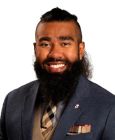Resilience
The Value of Defeat in Developing Resilience
"Wins and lessons" instead of "wins and losses" in youth sports.
Posted May 16, 2024 Reviewed by Michelle Quirk
Key points
- How we respond to failure in sports and in life is highly significant.
- Self-assessment at the individual and team levels after defeats allows us to zoom in on areas for growth.
- School social work practitioners can give students choices to support their ability to think independently.
No athlete plays to lose, nor does any coach game plan for defeat. It’s safe to say that a competitive mindset is a prerequisite to participating in sports in any capacity. Nevertheless, no athlete or coach is undefeated in their lifetime, and how we respond to failure makes all the difference in sports and in life. As a youth football head coach, my teams and I have experienced our share of defeats. Sometimes we are outplayed, sometimes outcoached, sometimes both. Gleaned from a less-than-stellar win-loss record has been a plethora of teaching and learning moments.
Self-assessment at the individual and team levels after defeats has allowed us to zoom in on analyzing areas for growth, opportunities that often don’t exist after victories. It’s human nature to believe that little work is needed after wins while more work is needed after losses. The more we win, the more we believe we have already outworked our competition, subconsciously becoming complacent. Losses, though never desired, can be capitalized upon to accelerate growth through urgency.
I’ve often told my athletes that to play like a winner, you have to work like a loser. During especially difficult seasons, I’ve used the language of “wins and lessons” instead of “wins and losses” as it encourages continuous growth under undesirable circumstances. These lessons often transcend from the football field into the classroom and eventually into careers in the boardroom.
What if ‘All I Do Is Win’?
“All I do is win, win, win no matter what” (DJ Khaled, 2010).
Although this seems like a delightful way to experience life, it’s quite obvious that the low points in our lives make the high points that much more enjoyable. If all we did was win, apathy would replace enthusiasm as we wouldn’t know the sting of loss. Defeat helps us learn resilience through constructive criticism, whereas constructive criticism is more difficult to formulate and accept in victory.
It’s a myth that we either fail or we succeed. The reality is that we fail in order to succeed—that the road to success is paved in failure. Thus, there is no success without failure, and contrary to what some may believe, failure is not the opposite of success but rather it’s a part of success (Huffington, 2018). Ultimately, if all we did was win, it would be impossible for us to grow.
Fixed Mindset vs. Growth Mindset
Stanford University psychologist Carol Dweck (2015) writes about fixed and growth mindsets: A fixed mindset leads to a desire to look smart and therefore a tendency to (a) avoid challenges, (b) give up easily due to obstacles, (c) see effort as fruitless, (d) ignore useful feedback, and (e) be threatened by others’ success. This results in what she calls "static intelligence." A growth mindset, on the other hand, leads to a desire to learn and therefore a tendency to (a) embrace challenges, (b) persist despite obstacles, (c) see effort as a path to mastery, (d) learn from criticism, and (e) be inspired by others’ success. This results in what she calls "developmental intelligence."
Implications for School Social Work Practice
Developing growth-minded youth, athletes or not, means facilitating autonomy. School social work practitioners can give students choices to support their ability to think independently. To develop meaningful relationships with students, school social work practitioners can organize group activities in and out of sports. Asking students to keep a journal is a great way for school social work practitioners to support students’ self-reflection.
School social work practitioners can provide opportunities for students to display life skills by welcoming student leadership in decision-making, particularly in peer-group settings (e.g., team sports). When teachable moments appear, school social work practitioners can pause to stress the transferability of life skills. Using volunteerism is another way school social work practitioners can involve local communities by having students teach (or coach) younger students.
Academic development is the top priority for students, including student-athletes, and school social work practitioners can help coaches take an interest in their athletes’ academic progress. By encouraging peer evaluation and learning from others, school social work practitioners can encourage students to learn from each other in addition to their teachers and coaches. Finally, school social work practitioners can help teachers and coaches intentionally plan developmental strategies to encourage realistic goal-setting for their students and athletes.
Conclusion
Wins and losses in youth sports are essentially meaningless. I’ve told the parents of my youth football players that some of them may go pro, but none of them will go pro next year. (I coach 8-year-olds.) I’ve opted to use the language of "wins and lessons" instead of "wins and losses," and it has helped implement a growth mindset for holistic athlete development. I ask my athletes to consider how the lessons they learn on the football field can translate to lessons applied in the classroom, and one day, the boardroom. Past task competence can help develop future task confidence; thus, reflecting on why a lesson learned about football is actually a lesson learned about life is of utmost importance to the development of student and athlete resilience and empowerment.
References
Dweck, C. (2015). Carol Dweck revisits the growth mindset. Education Week, 35(5), 20–24.
Satara, A. (n.d.). In 1 Sentence Arianna Huffington Captured the Pathway to Success; Anyone with ambitious goals needs to hear her perspective on this. Inc.com.
Khaled, D. (Artist). (2010). All I do is win [Music]. Victory.




